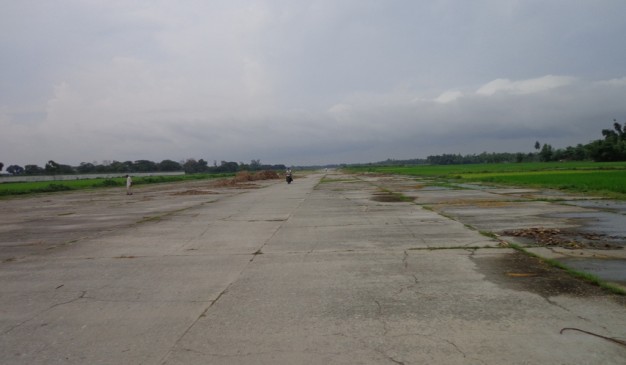India’s security agencies are on heightened alert following reports that Bangladesh’s interim government, led by Muhammad Yunus, is working to revive the long-dormant Lalmonirhat airbase in the country’s north—with active support from China. The development, just 135 kilometers from the strategic Siliguri Corridor or “Chicken’s Neck,” has raised significant concern in New Delhi.
Though Bangladesh officially frames the initiative as a step towards regional economic development and infrastructure enhancement, Indian intelligence views the move as a veiled attempt by China to establish a strategic foothold dangerously close to India’s most vital and vulnerable land corridor.
The Siliguri Corridor, a narrow strip of land only 20–22 km wide at its narrowest, connects the rest of India with the northeastern states and is flanked by Nepal, Bhutan and Bangladesh. It contains critical roadways, railway lines and military logistics, making it a key lifeline for the region.
“Any foreign presence—especially Chinese—in this area is a direct concern for our national security. The revival of the Lalmonirhat airbase near this corridor cannot be viewed as an isolated infrastructure project,” a senior official from the Ministry of External Affairs (MEA) said.
Built in 1931 by the British and used briefly post-WWII, the Lalmonirhat airbase was largely inactive until the 1950s. It was previously earmarked by Sheikh Hasina’s government to host an aviation university. Under Yunus’ leadership, however, the project appears to be shifting toward restoring full aerial operations, with increased Chinese engagement drawing close scrutiny from Indian authorities.
Foreign interests raise red flag
Indian intelligence sources have also tracked visits by Chinese representatives and reportedly, officials from Pakistan’s ISI to the Rangpur region—deepening concerns that the move is part of a broader axis of influence being drawn up near India’s eastern frontier.
In meetings with Chinese officials earlier this year, Yunus allegedly proposed turning Bangladesh into an “economic pasture” for Beijing, suggesting that Chinese-controlled ports and trade routes be used to influence India’s northeastern states economically. These proposals include managing the imports and exports of these landlocked states through Chinese-dominated infrastructure in Bangladesh.
“This is not merely an economic vision. It’s a strategic recalibration aimed at subtly encircling India’s northeastern region under the guise of development cooperation,” said the MEA official.
Past precedents and preparedness
Indian defense strategists have pointed to past precedents—such as the 73-day Doklam standoff in 2017—to underline that New Delhi will not hesitate to act decisively in defense of the Siliguri Corridor. They also note that dual-use infrastructure, like an airbase with civilian pretexts, can quickly be militarized, especially with embedded Chinese technology that could enable surveillance and intelligence gathering.
Officials further warn that the presence of Chinese radar, communication, or tracking systems at Lalmonirhat would grant Beijing real-time access to one of India’s most sensitive supply and military routes.
Meanwhile, Yunus has also reached out to Nepal and Bhutan, pushing for a broader economic integration model involving India’s northeast—a proposal that, though wrapped in the language of cooperation, is seen by New Delhi as a possible step toward regional encirclement.
Voices within Bangladesh calling for deeper economic engagement with the Indian northeast are becoming louder. While not part of official policy yet, Indian analysts believe these statements reflect a shift in regional alignment, which could eventually challenge India’s strategic dominance in its own backyard.
“The revival of Lalmonirhat is not just an infrastructural revival—it’s a strategic message,” said an Indian intelligence official based in Dhaka. “India is watching every step. Any effort to destabilize the Siliguri Corridor or use neighboring countries to exert pressure on India’s northeast will be met with a strong and calibrated response.”


